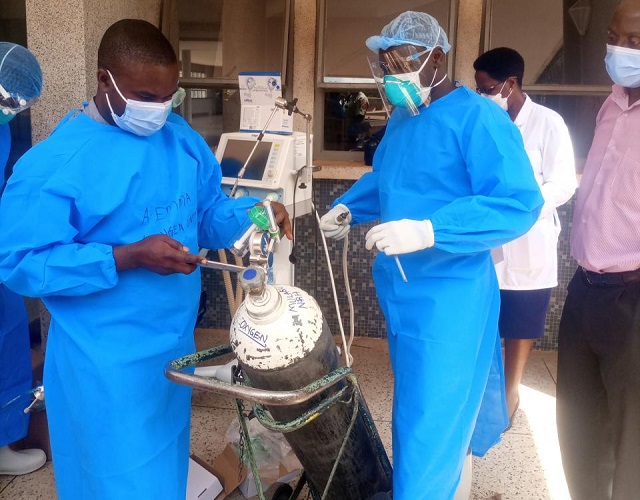
How public anger against Uganda government’s response to COVID is driven more by prejudice than facts
THE LAST WORD | ANDREW M. MWENDA | Last Saturday, I lost my auntie, Princess Damali Komukyeeya of Toro. I tweeted that although she had COVID, she was fairly fine Friday evening. She developed breathing difficulties on Saturday morning. When rushed to hospital, “there was no oxygen” but that was a poor framing imposed on me by Twitter’s limits on characters. She found all the beds at Mulago occupied, so there was no place for her to be put on oxygen. My tweet went viral; viewed by 540,000 people with 54,000 engagements.
Some people celebrated that I had lost an auntie because previously I had said Mulago Hospital is well equipped, which it is. Others said I have been insensitive to the death of opposition activists killed by “this regime.” A few quoted a tweet I posted in 2016. It was a hypothetical argument where I said that if a public official stole money meant for a hospital and used it to build a factory, such a factory may serve a better social goal than the hospital. Some commenters said I had gotten what I deserved.
This is to inform our family, friends and in laws that my auntie, Princess Damali Adyeri Komukyeeya, has just passed away due to #COVID19. She was in good health last night. This morning she got breathing difficulties, was taken to hospital but there was no oxygen. So she died! pic.twitter.com/RbFmNKbdzT
— Andrew M. Mwenda (@AndrewMwenda) June 26, 2021
I don’t mind anyone celebrating my relatives’ deaths if it helps them feel better. I am aware this world tends to be very harsh and judgmental to those who do not perform according to the criteria society defines as “success.” Instead, it tends to stigmatise them, making them feel unworthy. These people lash back with venom, often at self-invented social enemies i.e. those in society they consider responsible for their misfortune. In our case, it is those (in their view) that seem powerful and influential.
Yet this anger, while understandable, is often counterproductive. It does not help, except momentarily for an emotional high, the cause of those who feel left behind. In today’s age of social media, social anger propels demagogues to the forefront of politics. These exploit public frustration for their own ambitions to raise to power. They do so by fear mongering, setting one group against another. They achieve this by inventing social enemies based on identity. This makes governance difficult and expensive.
To stabilise politics in a polarised environment, incumbents are forced to rely more on corruption to placate the interests of these powerful politicians who whip up hate. We have seen them in United States via Donald Trump. But we have also seen them in action during Brexit, in Philippines, India, Turkey, Hungry and across most of Europe and other nations of the world. They tend to deepen social cleavages, heighten tensions, set citizens against each other and undermine democratic politics.
There is a deep sense of grievance among large sections of Ugandans. Many feel the country is being mismanaged by extremely corrupt and greedy politicians who do not care about the ordinary citizen. This has given birth to an outrage machine that profits from whipping up this public resentment. I suspect that this anger is driven by factors beyond any leader of Uganda can solve in a lifetime. Yet people need to find a villain to blame, that is the only way they can vent their anger. In our specific case, a long serving president as Yoweri Museveni makes the perfect villain to blame. Yet this sentiment does not actually rhyme with the facts.
The post Celebrating one’s misfortune appeared first on The Independent Uganda:.
from The Independent Uganda: https://ift.tt/3AlB6RM
0 Comments